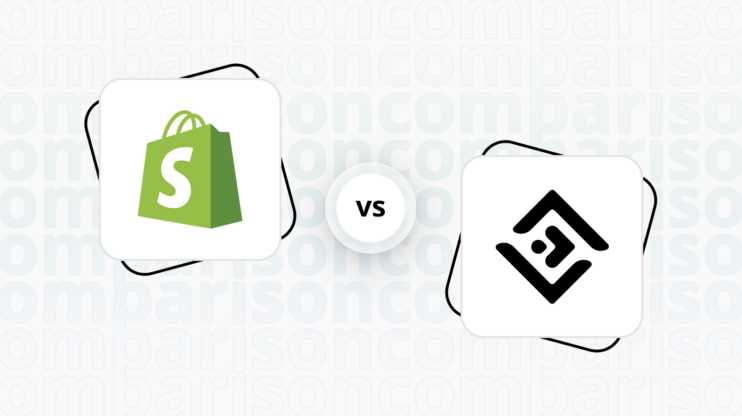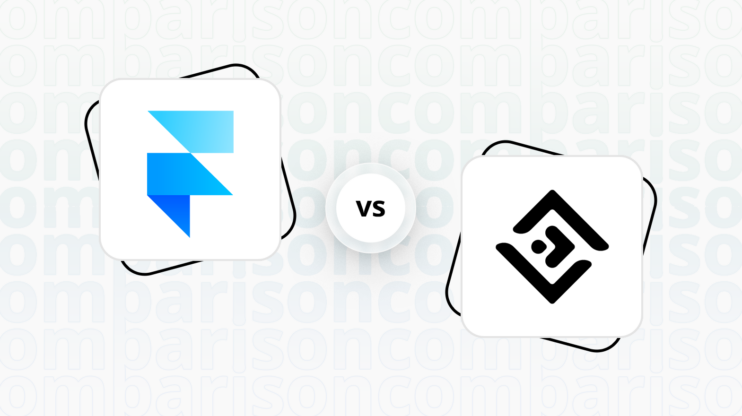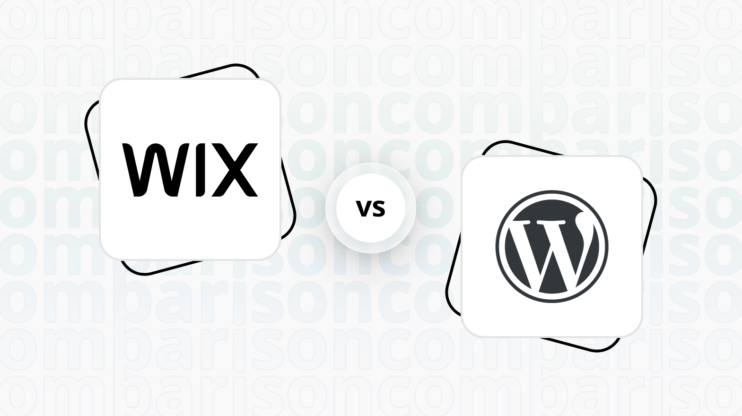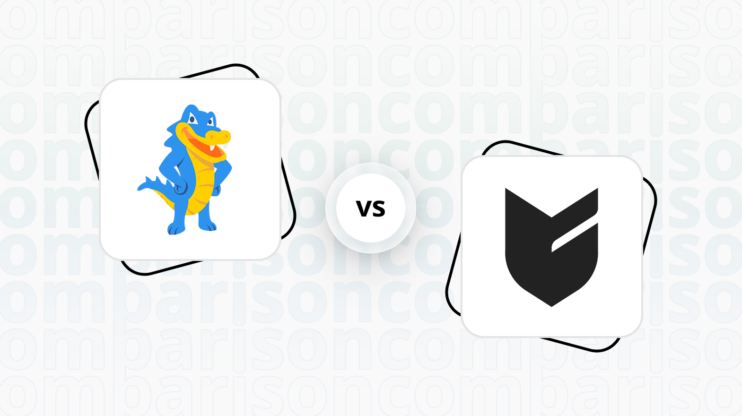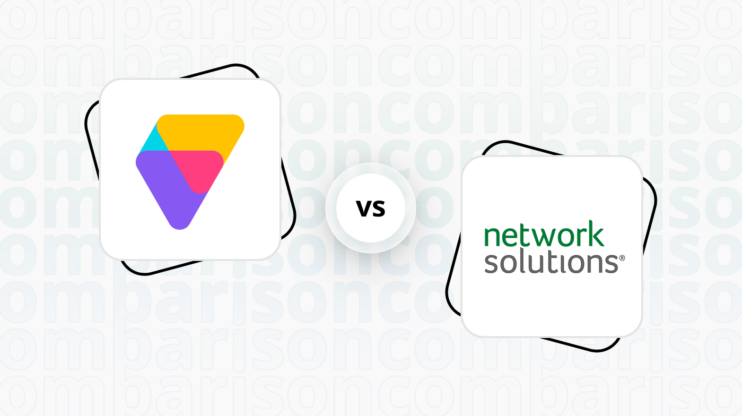Final verdict
Shopify and Framer cater to different niches within the website building and design landscape, each with its unique strengths.
-
Shopify (Overall Grade: 8.1/10)
excels as an ecommerce platform, offering a comprehensive suite of tools for online store management, including advanced payment processing, inventory management, and marketing features. It’s designed for users who need a robust, scalable solution for online sales, backed by strong customer support and security measures. Shopify’s ease of use and extensive app marketplace make it a top choice for businesses focused on growth and sales. -
Framer (Overall Grade: 7.1/10)
stands out for its design and prototyping capabilities, offering a more creative control and extensive customization through its component library and AI tools. While it may not natively support ecommerce features as Shopify does, its integration with Ecwid and focus on design make it suitable for projects where visual presentation and user experience are paramount. Framer’s approach to website building is more aligned with designers and developers looking for a flexible, innovative platform.

|

|
|
|---|---|---|
|
Design functionalities & templates |
8.2 |
8.5 |
|
Ease of use |
7.5 |
7.1 |
|
Ecommerce |
9.2 |
5.9 |
|
Website Editors |
7.9 |
7.6 |
|
Product testing options |
8.1 |
6.2 |
|
Price |
8.2 |
7.7 |
|
Hosting quality |
9.0 |
7.1 |
|
Website speed optimization |
7.8 |
7.4 |
|
Plugins and integrations |
8.7 |
7.6 |
|
Marketing features |
8.8 |
7.2 |
|
Customer support |
8.6 |
5.6 |
|
Security |
9.0 |
8.2 |
|
AI capabilities |
7.9 |
7.6 |
|
User Management |
6.5 |
7.4 |
| Overall |
8.1 |
7.1 |
Best for ecommerce
 9.2
9.2
 5.9
5.9
Verdict
: Shopify clearly outperforms Framer in the ecommerce domain, offering a more comprehensive and specialized set of tools for online stores.
-
Shopify
: With a score of 9.2, Shopify is designed for ecommerce from the ground up, providing a wide array of features including advanced inventory management, multiple payment gateways, and extensive analytics. It’s the go-to choice for businesses looking to scale and diversify their online sales channels. -
Framer
: Scoring 5.9, Framer is more suited for general website building with an emphasis on design and customization. While it can support ecommerce through third-party integrations, it lacks the depth of features and native support found in Shopify, making it less ideal for dedicated ecommerce projects.
Best for informational & business websites
 6.8
6.8
 7.5
7.5
Verdict
: Framer edges out Shopify for informational and business websites, offering superior design flexibility and a user-friendly platform that caters well to non-ecommerce needs.
-
Shopify
: Known for its ecommerce strength, Shopify also supports informational websites but with limitations. Its focus on online stores means that while it can serve business websites, it may not offer the same level of design customization or simplicity desired for purely informational sites. -
Framer
: Framer shines for informational and business websites with its AI-driven design capabilities and extensive customization options. It’s particularly suited for users looking for a blend of ease of use and advanced design features, even if it lacks native ecommerce functionality.
Detailed comparison
Design functionalities & templates
Design FunctionalitiesRepresents how well each platform allows for creative design and customization of websites.Score Components:
- Template Variety (30%): Range and quality of design templates.
- Customization (30%): Flexibility and options for design alterations.
- User Interface (20%): Ease and intuitiveness of the design process.
- Responsiveness (10%): Adaptability to different devices and screen sizes.
- Innovation (10%): Unique design features and tools.
 8.2
8.2
 8.5
8.5
🏆
Winner: Framer.
If you’re looking for a platform that offers more creative control, a wide array of design features, and a larger number of templates, Framer is the preferred choice.
Shopify’s templates are sleek and professional, ideal for ecommerce sites. They offer a sophisticated look with a focus on online stores. While the free template selection is not large, Shopify’s premium theme store provides a variety of industry-specific options, offering advanced features for a strong brand presence.
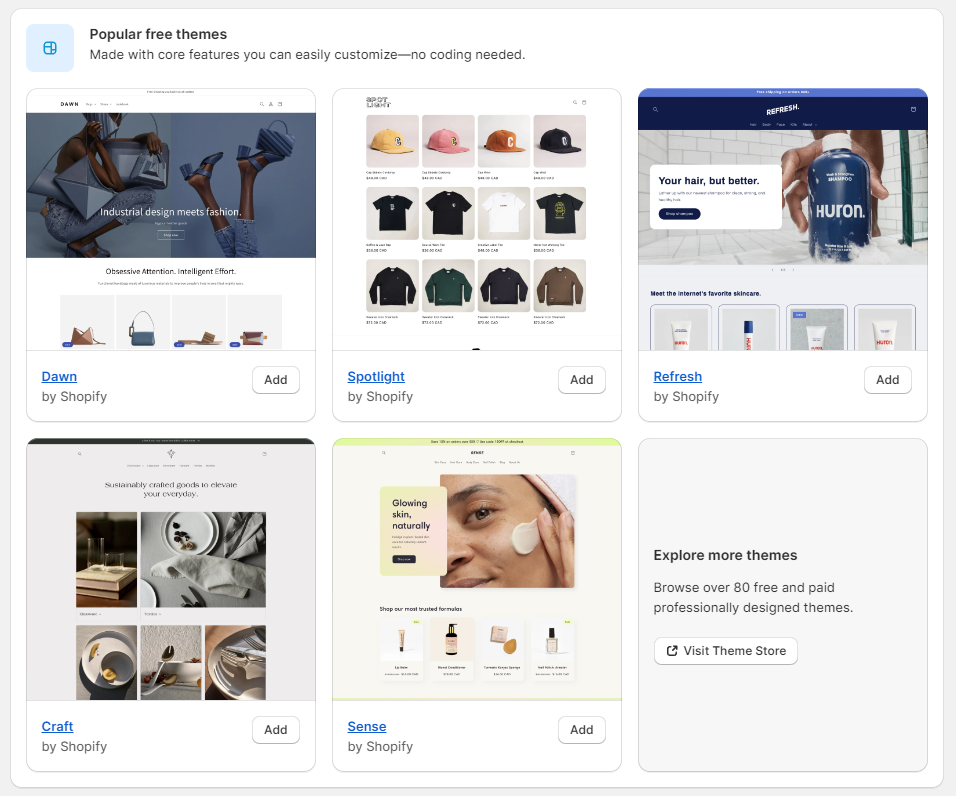
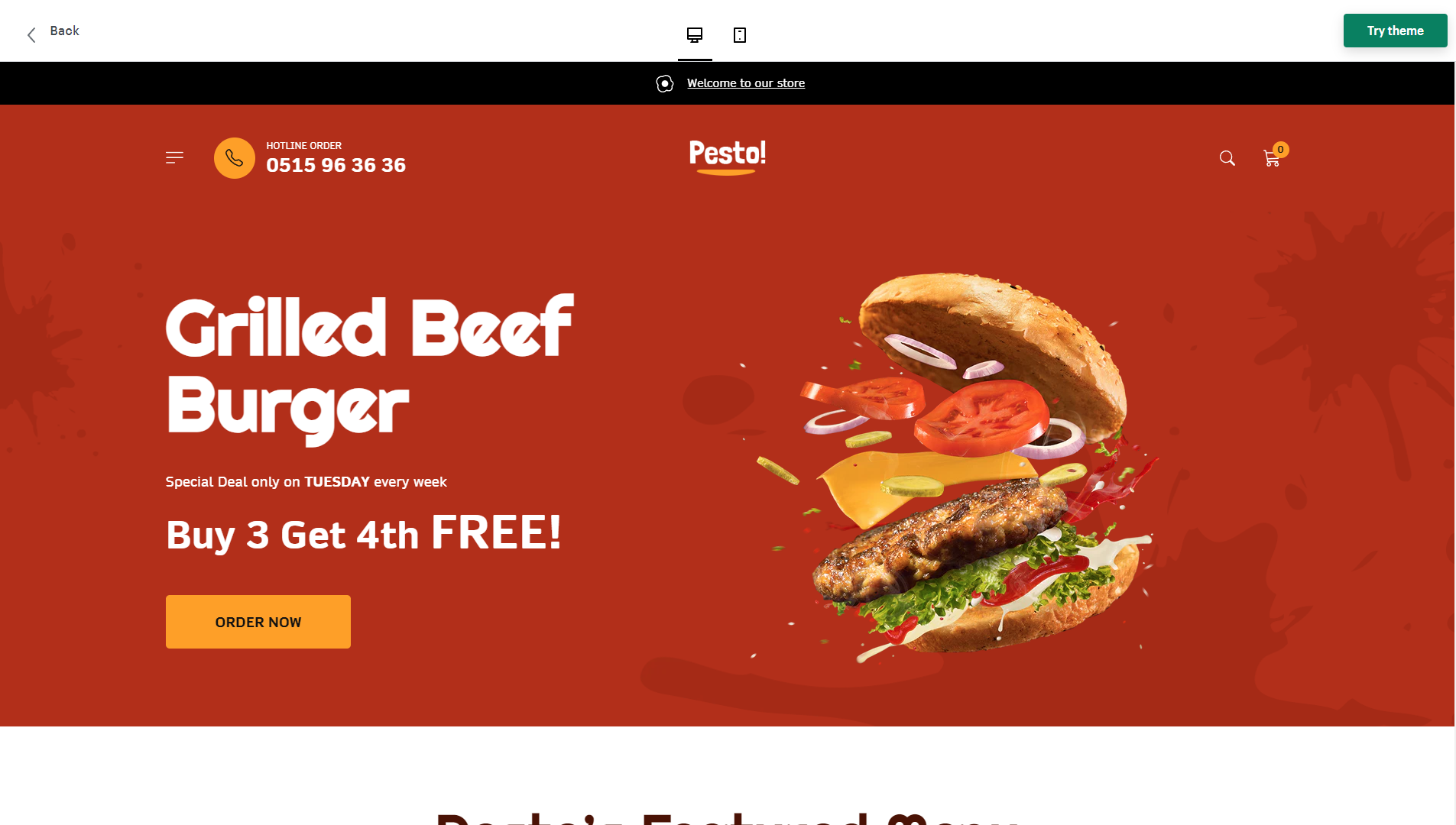
Compared to Shopify, Framer offers a diverse array of over 1,000 customizable website templates and designs, catering to various industries and project requirements. It stands out for its robust design and prototyping features, including responsive design capabilities, real-time collaboration, and extensive import options from other design tools.
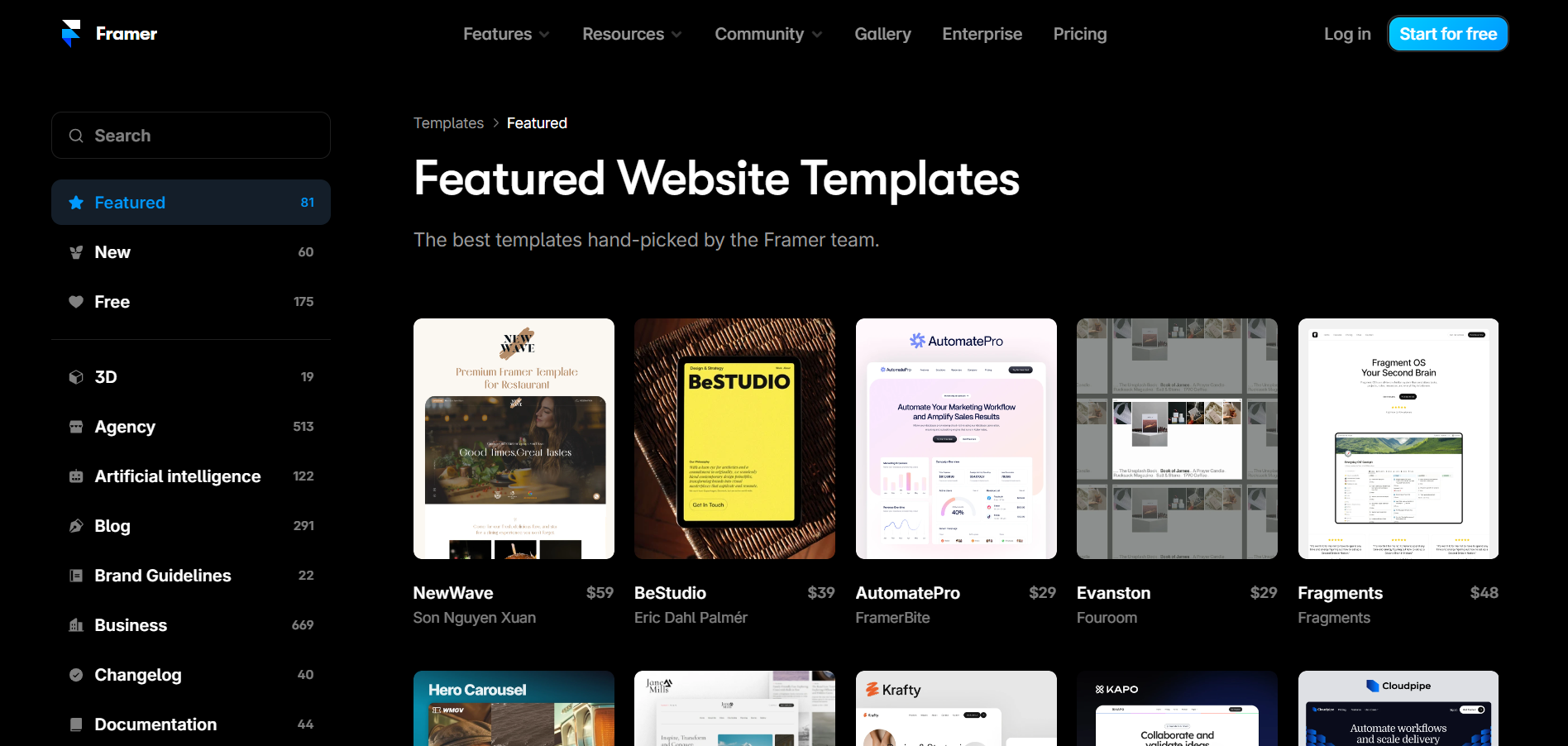
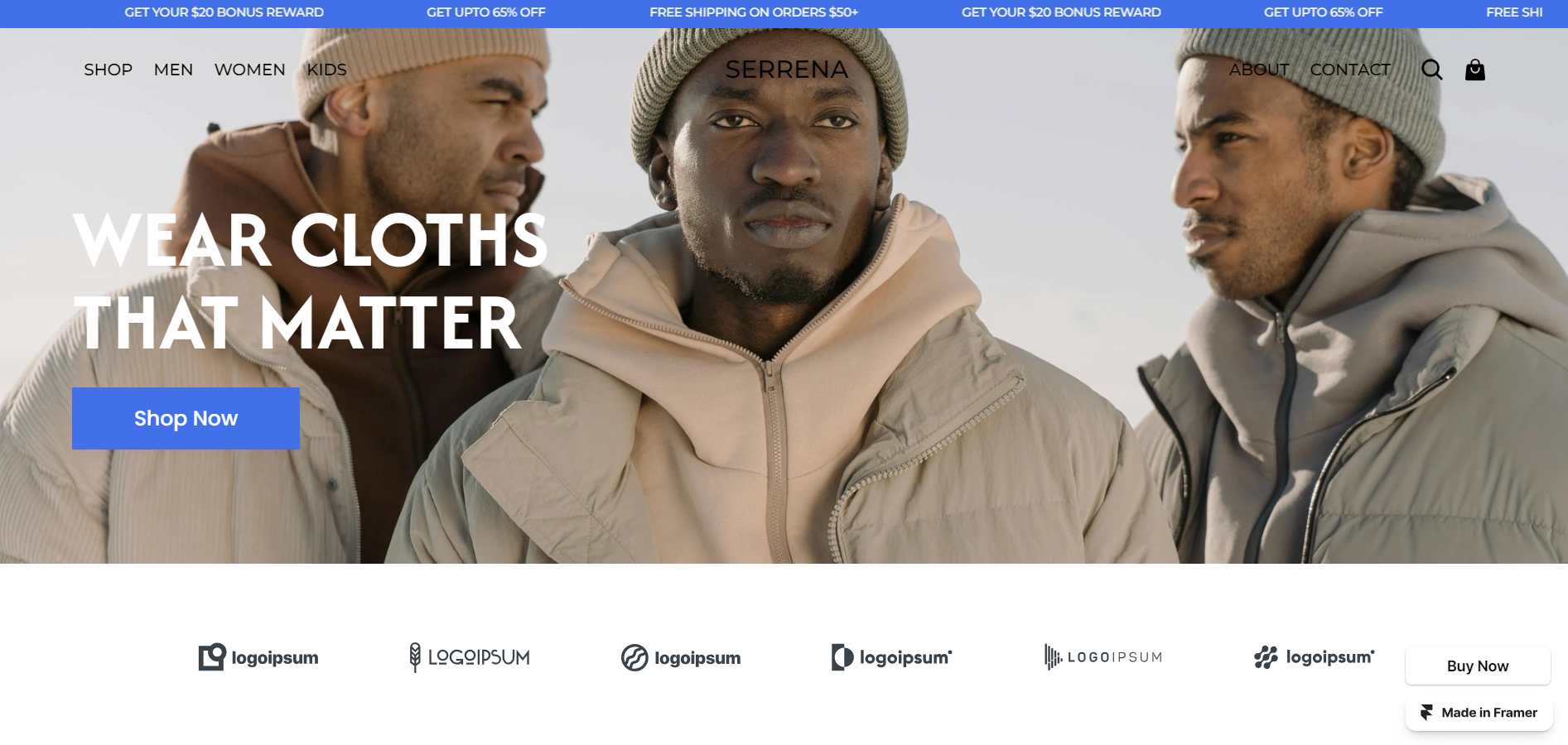
Get a head start on website creation with AI
Create a custom website tailored to your business needs 10X faster with 10Web AI Website Builder!
Ease of use
Ease of useReflects the platform’s overall user-friendliness.Score
Components:
- Learning curve (40%): Quickness and ease of getting started.
- Interface design (30%): Simplicity and intuitiveness of layout.
- User guidance (20%): Quality of tutorials and support.
- Flexibility (10%): Adaptability to various user skills.
 7.5
7.5
 7.1
7.1
🏆 Winner: Shopify
. Scoring 7.5, Shopify is widely praised for its exceptional ease of use, offering a drag-and-drop interface, intuitive layout, pre-built templates, and extensive resources for beginners. Framer, with a score of 7.1, offers an intuitive interface for those with a basic understanding of design principles, but it may present a learning curve for complete beginners due to its advanced animation and interaction features.
Learning Resources
🏆 Winner: Shopify
. Both platforms offer solid learning resources, but Shopify provides an extensive library of articles, tutorials, webinars, and video courses, focusing primarily on setting up and managing online stores, making it easier for users to learn and adapt.
For ecommerce
EcommerceMeasures the platform’s effectiveness in supporting online business activities.Score Components:
- Ecommerce themes and templates (20%): Variety and design of templates.
- Product management (25%): Ease of managing and organizing products.
- Payment options (25%): Variety and convenience of payment methods.
- Ecommerce features (20%): Features for managing an ecommerce store.
- Integration (10%): Compatibility with external e-commerce tools and services.
 9.2
9.2
 5.9
5.9
Shopify is a leading ecommerce platform with a comprehensive set of features for online businesses. It offers tools for creating and customizing online stores, managing products, processing payments, and handling order fulfillment. On the other hand, Framer is a website builder that lacks native ecommerce features but can be paired with Ecwid’s free shopping cart extension for ecommerce functionality.

|

|
|
|---|---|---|
|
Ecommerce themes and templates |
8.2 |
7.0 |
|
Product page customization |
8.5 |
5.5 |
|
Payment processing and commissions |
8.8 |
6.5 |
|
POS capabilities |
8.1 |
3.0 |
|
Payment gateways |
9.5 |
6.0 |
|
Product numbers |
9.0 |
6.0 |
|
Additional ecommerce features |
9.1 |
5.5 |
Shopify ecommerce features:
- Comprehensive store builder
- Shopify Payments and other gateways
- Advanced inventory management
- Multi-channel selling
- Abandoned cart recovery
- Detailed analytics and reporting
Framer ecommerce features:
- Ecwid integration
Ecommerce themes & templates
Shopify offers about 150 modern responsive themes for creating a virtual storefront, ensuring a good look on both desktop and mobile devices. While some themes are free, others cost between $170 to $380. In contrast, Framer offers 97 website templates specifically designed for eCommerce, providing a wide range of options for various business needs. These templates are highly customizable, allowing for easy adjustments to colors, fonts, layouts, and integration with essential eCommerce tools.
Product page customization
Shopify allows for three options per product, totaling 100 unique variations. While Shopify offers titles, descriptions, and image galleries with zoom effects, customization options like adding ribbons, size charts, and wishlists are not as straightforward. However, Shopify distinguishes itself with additional features through its extensive library of extra apps, offering functionalities like reviews, Facebook stores, eBay item importers, and a unique Augmented Reality feature for an enhanced customer experience. On the other hand, Framer primarily focuses on expanding design possibilities for eCommerce. However, it lacks inherent eCommerce functionalities and instead heavily depends on integrating with platforms such as Shopify and Ecwid. Additionally, while Framer allows for some customization of product pages, these modifications are generally limited to design and layout alterations.
Payment processing
Shopify offers payments with typical charges of
2.9% + 30¢
per online transaction on basic plans, and lower fees for higher-tier plans. However, it adds extra fees for using other payment gateways. Shopify Payments is Shopify’s own payment processing gateway. It allows merchants to accept credit card payments directly on their store without having to integrate third-party payment providers. This simplifies the payment process, reduces transaction fees, and streamlines the handling of finances. Framer, on the other hand, supports Stripe for payment processing, enabling a wide range of payment options including one-time payments, subscriptions, and more, without requiring coding. While specific transaction fees were not mentioned, such fees typically depend on Stripe’s pricing. Framer’s focus is on online transactions and e-commerce integrations, and there’s no explicit mention of native POS functionality. For the most current details on fees and features, it’s recommended to consult directly with Framer or Stripe.
Website Editors
Website EditorsEvaluates the platforms’ website building and editing capabilities.Score Components:
- Customization tools (40%): Range and power of editing features.
- Editor usability (30%): User experience within the editor.
- Design flexibility (20%): Freedom in layout and design changes.
- Update and maintenance ease (10%): Simplicity of updating and maintaining the site.
 7.9
7.9
 7.6
7.6
🏆
Winner: Shopify
. Shopify, with a score of 7.9, excels in providing a streamlined, ecommerce-focused editing experience. It’s particularly beneficial for users who prioritize efficient management of online stores. The editor is straightforward, making it easy to add products, manage inventory, and set up payment methods. Shopify’s editor is optimized for sales and business growth, with built-in tools specifically designed for ecommerce businesses.
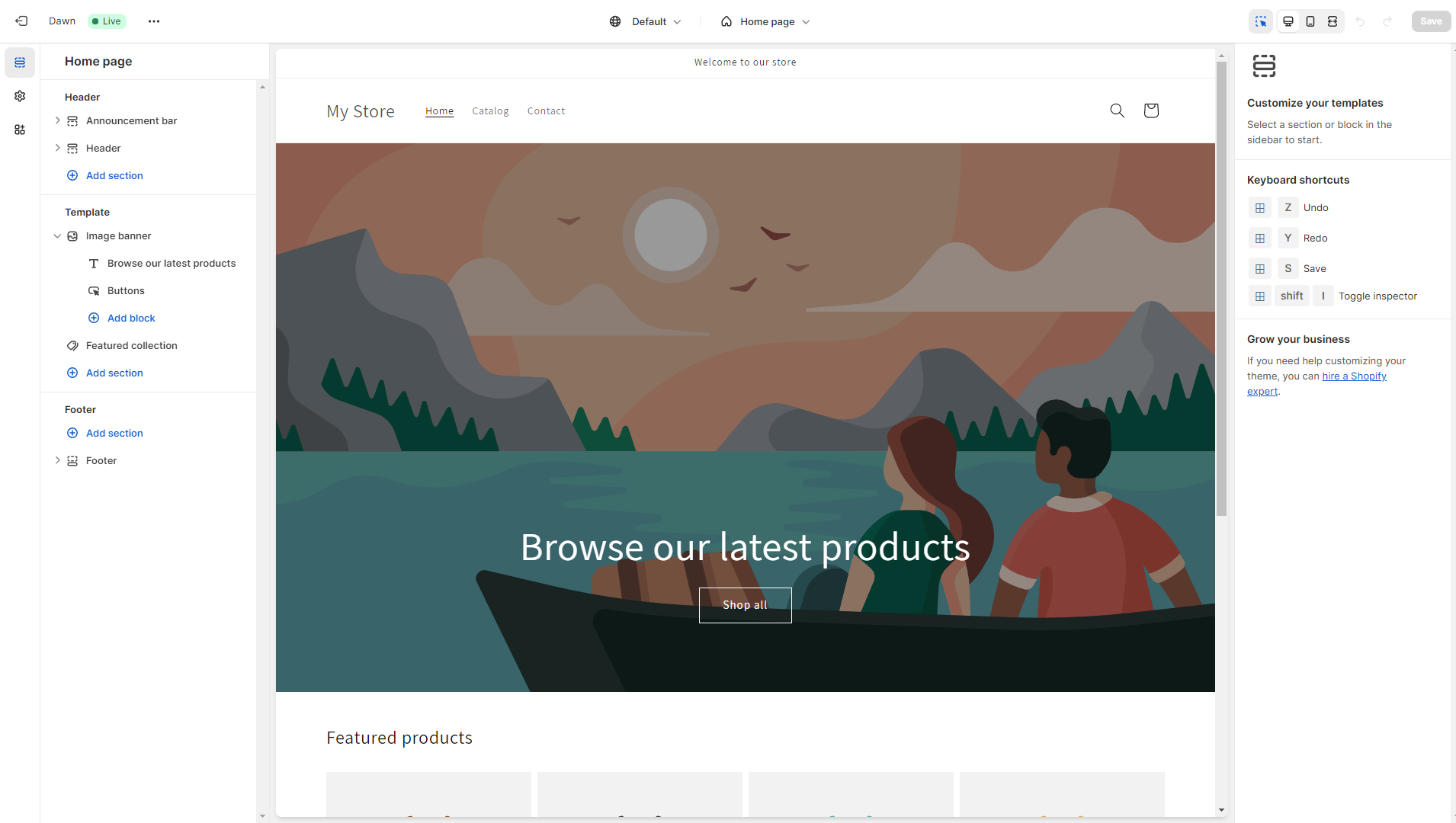
Framer’s editor, scoring 7.6, is designed for high-fidelity prototyping and complex animations, catering to both designers and developers. It offers a robust set of tools for creating interactive and responsive designs, including a wide array of pre-built components, real-time collaboration features, and the ability to integrate with other design tools and workflows. However, its advanced features and focus on high-fidelity prototypes may present a steep learning curve for beginners or those accustomed to more traditional, straightforward website builders.
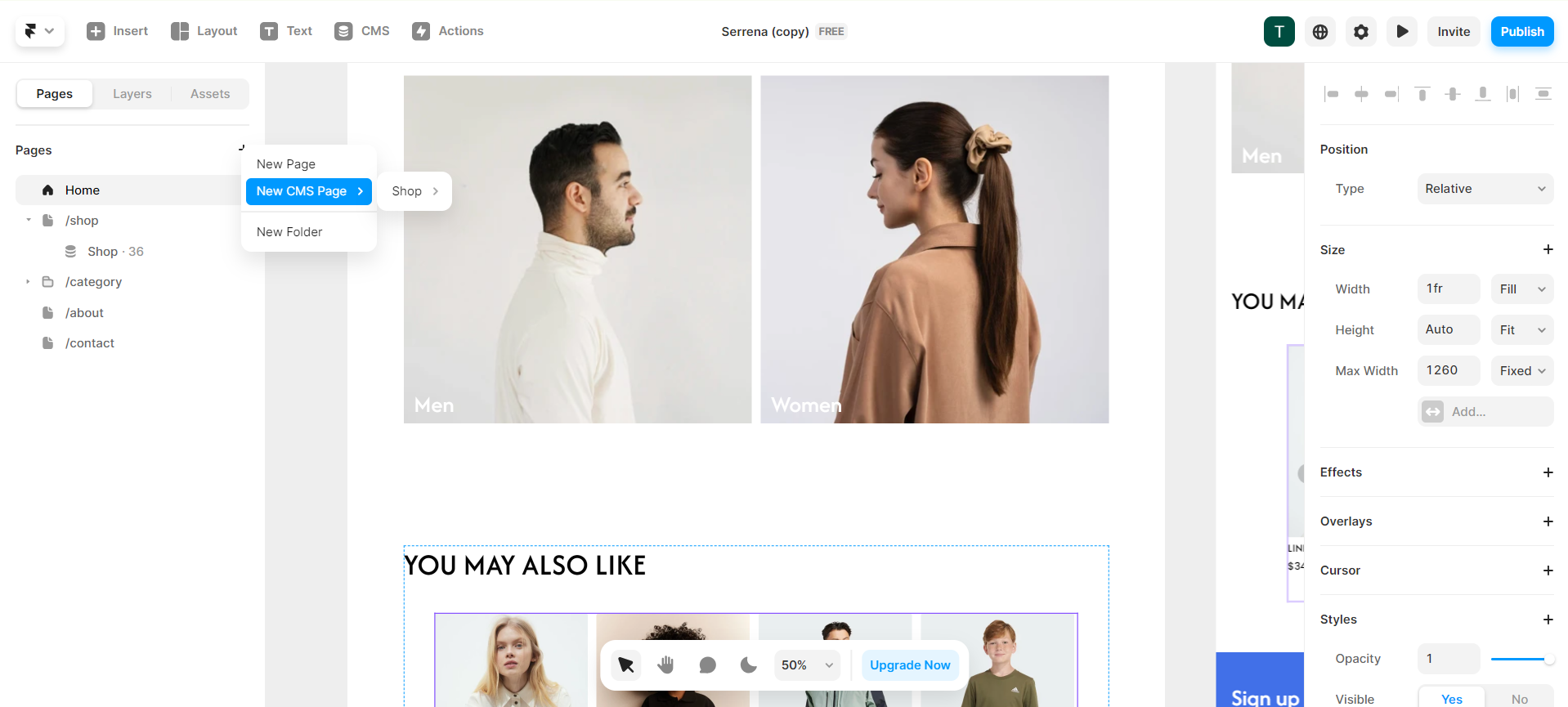
Mobile editor/app
 8.0
8.0
 4.5
4.5
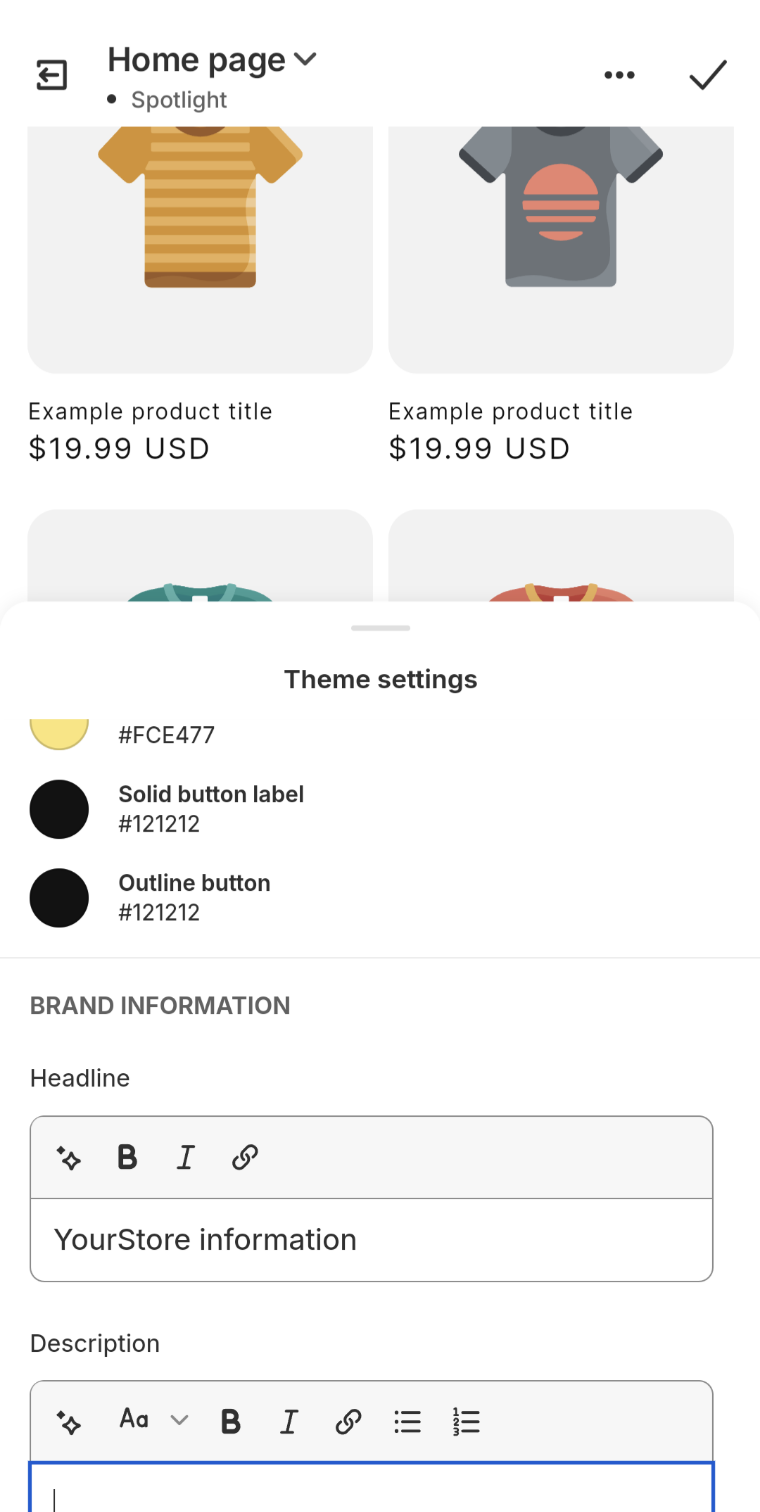
🏆
Winner: Shopify
. Both Shopify and Framer offer mobile editing capabilities, but they cater to different needs and skill levels. Shopify’s mobile app includes a user-friendly mobile theme editor that allows users to customize their online store website directly from their mobile device. This feature enables the addition, removal, editing, and rearrangement of content on the store’s website, offering convenient on-the-go adjustments to the store’s appearance and layout.
On the other hand, Framer does not have a dedicated mobile editor app. You can modify your website using a mobile browser, but this comes with certain restrictions and is notably inconvenient. Therefore, Shopify is the clear winner in this category due to its dedicated mobile app and higher mobile editor score.
Product testing options
Product Testing OptionsAssesses the options for trying out platform features before commitment.Score Components:
- Trial quality (40%): Extent and usefulness of the trial or free version.
- Feature accessibility (30%): How many features are available to test.
- Trial duration (20%): Length of the trial period.
- Ease of transition (10%): Smoothness of moving from trial to paid plans.
 8.1
8.1
 6.2
6.2
Overall Result
:
Shopify Wins
. Shopify scores 8.1, offering a 14-day free trial with access to all features, while Framer scores 6.2, offering a free version with limited features and a money-back guarantee only in some regions.

|

|
|
|---|---|---|
|
Free Plan |
No (14-day free trial) |
Yes |
|
Trial Duration |
14 days | No trial version |
|
Testing Premium Features |
All features during free trial |
Limited features with free version |
Price
PriceLooks at the cost-effectiveness and value for money of each platform.Score Components:
- Plan value (40%): What each pricing tier offers.
- Transparency and clarity (30%): Clearness of pricing structures.
- Flexibility of plans (20%): Range of options to suit different budgets.
- Hidden costs (10%): Additional expenses not included in the plan.
 8.2
8.2
 7.7
7.7
Shopify and Framer offer different pricing structures, with Shopify focusing more on ecommerce and Framer offering a range of plans for different project sizes.

|

|
|
|---|---|---|
|
Free |
No offering at this amount. |
Free (Free/month): Allows 3 websites built on a framer.website subdomain with Framer branding in the footer. Limited to 1,000 traffic visitors and 1,000 CMS items. |
|
$0-$10 |
No offering at this amount. |
Mini ($10/month): Removes Framer branding, allows using a custom domain, includes collaboration with an additional cost for extra editors, custom code embedding, e-commerce support, and limited CMS items. Offers a monthly visitor limit of 2,000 and 1GB bandwidth. Value for price: 6.5 |
|
$10-$20 |
No offering at this amount. |
Basic ($20/month): Offers all Mini features plus increased limits for CMS items (1,000) and traffic (10,000 visitors per month), along with 10GB bandwidth. Value for price: 7.5 |
|
$20-$40 |
Shopify Basic ($29/month): Unlimited products, 2.9% + 30¢ card fee with Shopify payments, Extra 2% gateway fee without Shopify Payments, Abandoned cart recovery, Automated sales tax, Digital products, POS Integration, 2 staff accounts. Value for price: 8.0 |
Pro ($30/month): Enhances Basic plan features with a significant increase in CMS items (10,000), traffic (100,000 visitors per month), and bandwidth (100GB), among other advanced features. Value for price: 8.5 |
|
$70-$80 |
Shopify Standard ($79/month): Lower card fees (2.6% + 30¢), Gift cards, Professional reports, 5 staff accounts. Value for price: 8.5 |
No offering at this amount. |
|
$200+ |
Advanced Shopify ($299/month): Lowest card fees (2.49% + 30¢), Advanced report builder, Real-time carrier shipping, Up to 15 staff accounts Value for price: 8.8 |
No offering at this amount. |
location. As a result in rare cases the prices displayed here can differ from the ones you see on their
websites.
Hosting quality
Hosting
qualityExamines the reliability and performance of the hosting solutions.Score Components:
- Uptime (40%): Consistency and reliability of website availability.
- Speed (30%): Loading times and performance.
- Bandwidth and storage (20%): Sufficiency of resources provided.
- Data centers (10%): Quality and distribution of hosting infrastructure.
 9.0
9.0
 7.1
7.1
Winner: Shopify
. Shopify’s proprietary cloud-based hosting, with a 99.99% uptime guarantee and 5 global data centers, is designed for high-traffic online stores. Framer, on the other hand, offers cloud hosting with a 99.9% uptime and 4 global data centers, suitable for various project sizes and budgets. However, Framer only guarantees 99.99% uptime for its enterprise plan. Shopify’s superior reliability and performance earn it a higher rating.

|

|
|
|---|---|---|
|
Do they offer hosting? |
Yes, included in all paid plans |
Yes, included in all paid plans |
|
Data Centers: |
5 globally: USA (Ashburn, Virginia; Santa Clara, California), Canada (Toronto, Ontario), Ireland (Dublin), and Singapore |
4 globally: 2 in US, 1 in Ireland, 1 in Singapore |
|
Type of hosting: |
Proprietary cloud-based hosting |
Cloud Hosting |
|
Uptime: |
99.99% |
99.9% |
|
Uptime Guarantee: |
Yes, 99.99% |
Only for enterprise plan, 99.99% |
Website Speed Optimization
Website Speed OptimizationEvaluates optimization of website loading timesScore Components:
- PageSpeed Score (30%): Google’s score indicating performance optimization.
- Loading Time (30%): The average time until a website is fully interactive.
- Mobile Optimization (15%): Optimization effectiveness for mobile devices.
- Resource Optimization (15%): Optimizing images, scripts, and other heavy resources.
- CDN Usage (10%): Use of CDN to enhance speed across geolocations.
 7.8
7.8
 7.4
7.4
🏆 Winner: Shopify
Both Shopify and Framer place a high priority on website performance and page speed, with Shopify focusing on app efficiency and theme optimization, and Framer emphasizing code minification, pre-rendering, caching, and image optimization. However, Shopify gets a slight edge when it comes to website speed optimization.

|

|
|
|---|---|---|
|
Focus |
App optimization, Theme optimization |
Code Minification, Pre-Rendering, Caching, Image optimization |
|
Performance Tools |
Google Lighthouse, PageSpeed Insights |
Google PageSpeed Insights Integration |
|
Key Strategies |
App efficiency, Theme optimization |
Code Minification, Pre-Rendering, Caching, Image optimization |
|
Load Times |
Varies widely, dependent on optimization |
Varies depending on optimization and website complexity |
|
Page Speed Scores Range |
Scores vary; influenced by apps, images |
Varies depending on optimization and website complexity |
|
Core Web Vitals Improvement |
Emphasis on LCP, FID, CLS improvements |
Emphasis on LCP, FID, CLS improvements |
Shopify’s approach to enhancing site speed includes app optimization by removing unneeded app code, conditionally loading apps, avoiding immediate pop-up displays, and incorporating app functionality directly into themes. This approach leverages Shopify’s fast servers and CDN network to boost load speed. Shopify also suggests utilizing Google AMP for faster mobile page loads, although with some design compromises. Analysis of three Shopify sites showed a range of Shopify speed scores from 14 to 75, Google PSI scores from 8 to 80, and load times varying from 10.6 seconds to 2.3 seconds. Continuous maintenance and optimization are essential for keeping Shopify stores fast.
Framer, on the other hand, focuses on code minification, pre-rendering, caching, and image optimization to enhance website speed. The load times and PageSpeed scores for Framer vary depending on optimization and website complexity. Like Shopify, Framer also places emphasis on improving Core Web Vitals (LCP, FID, CLS). However, due to the lack of native e-commerce features, Framer might not be the best choice for online stores.
Get a head start on website creation with AI
Create a custom website tailored to your business needs 10X faster with 10Web AI Website Builder!
Plugins and integrations
Plugins and integrationsMeasures the range and effectiveness of additional plugins and integrations.Score Components:
- Variety of options (40%): Range of available add-ons.
- Integration smoothness (30%): Ease of integrating plugins into the site.
- Quality of plugins (20%): Functionality and reliability of the options.
- Custom integration capabilities (10%): Support for custom or third-party integrations.
 8.7
8.7
 7.6
7.6
🏆 Winner: Shopify.
With a score of 8.7, Shopify leads the way with its extensive range of ecommerce-focused plugins and seamless integrations. It offers over 8,000 apps in its App Store, covering a wide range of functionalities. These apps enhance ecommerce by offering advanced sales, marketing, and payment options, streamlined shipping, sophisticated inventory management, improved customer service, in-depth analytics, seamless accounting integration, creative store design, mobile app support, enhanced security, multi-channel selling, product review tools, dropshipping and print-on-demand support, language localization, and accessibility improvements. Key Shopify integrations feature Oberlo for dropshipping, Klaviyo for email marketing, Yotpo for reviews, Printful for print-on-demand, Shopify POS for sales, Google Analytics for insights, Facebook Channel for social selling, ShipStation for shipping, QuickBooks for accounting, Privy for conversions, Smile.io for loyalty, SEO Manager, AfterShip for tracking, Spocket for products, and Gorgias for customer service, enhancing various ecommerce aspects.
Framer, with a score of 7.6, offers a variety of plugins that cater to different needs such as forms, video & animation, social media integration, audio, and utility functions. These plugins extend its capabilities beyond its base features by enabling integration with third-party tools and services, introducing more complex animations and interactions, and enhancing design systems with specialized components. They improve workflow efficiency with functionalities aimed at optimizing design processes and collaboration. Additionally, plugins can offer advanced code-related enhancements, accessibility improvements, SEO tools, and custom e-commerce solutions, allowing for more dynamic, efficient, and tailored website designs that cater to specific user needs and project requirements. Key Framer integrations include the ability to add Lottie animations for rich, vector-based animations that work on any device, 3D animations from Spline to create immersive web experiences, a Gumroad “Buy” button for seamless e-commerce transactions, icons from popular libraries for enhanced visual design, and MailChimp email marketing forms to grow and engage your audience. Integrations can be accessed directly through the website editor.
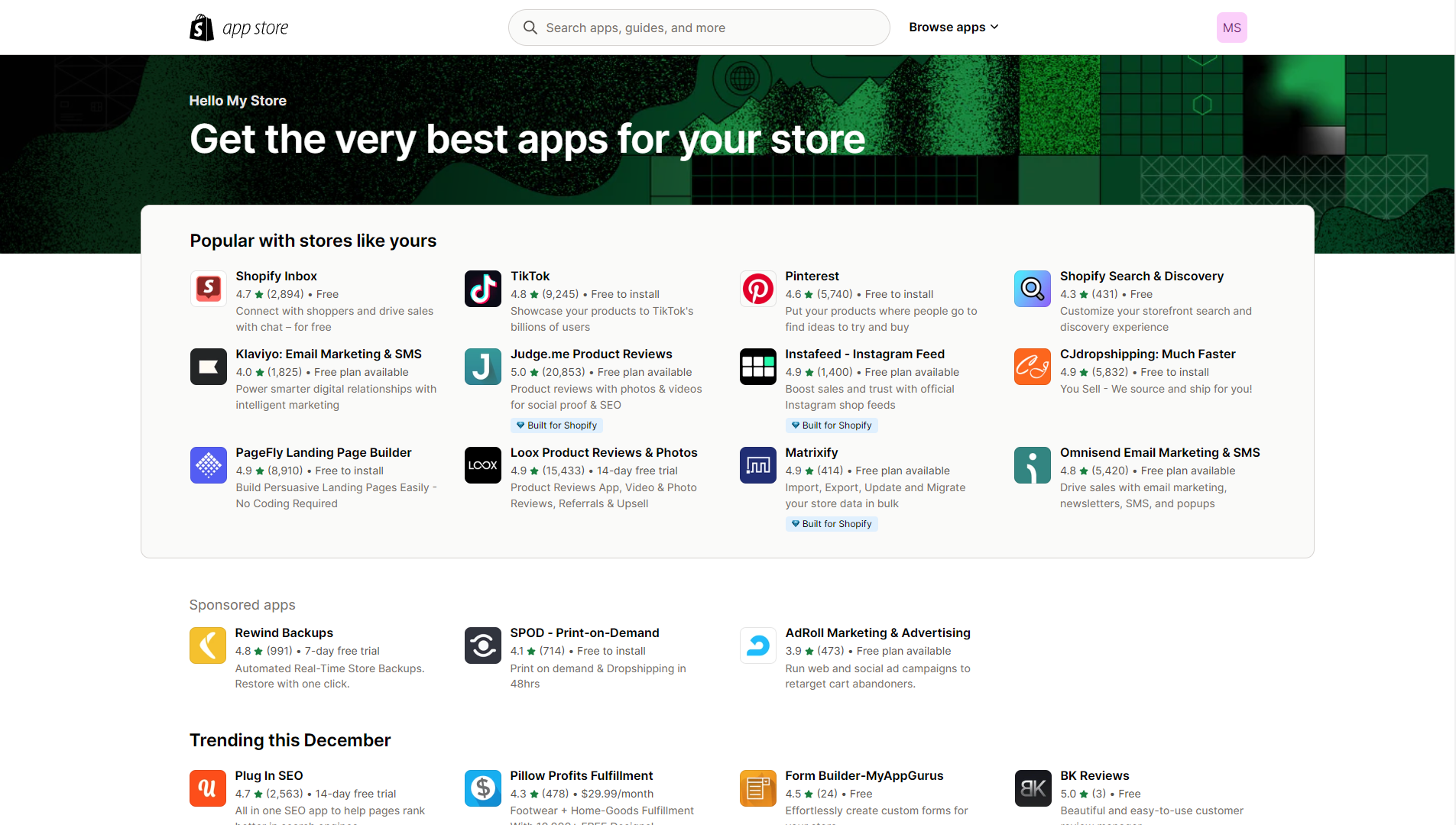
Marketing Features
Design FunctionalitiesRepresents how well each platform allows for creative design and customization of websites.Score Components:
- Template Variety (30%): Range and quality of design templates.
- Customization (30%): Flexibility and options for design alterations.
- User Interface (20%): Ease and intuitiveness of the design process.
- Responsiveness (10%): Adaptability to different devices and screen sizes.
- Innovation (10%): Unique design features and tools.
 8.8
8.8
 7.2
7.2
🏆
Overall Winner: Shopify
. Shopify stands out for its comprehensive and advanced ecommerce-focused marketing tools, especially in analytics and ad campaign management. Framer, while offering a range of marketing features, lacks in certain areas such as ads and promotions.

|

|
|
|---|---|---|
|
SEO Tools |
|
|
|
Email Marketing |
|
Through integration of third-party services such as Mailchimp |
|
Blogging |
|
|
|
Social Media Integration |
Advanced integration for selling directly on social platforms |
|
|
Analytics and Reporting |
Detailed analytics for in-depth insights |
Only on higher plans |
|
Ads and Promotions |
Google Ads integration; sophisticated ad campaign management |
|
Customer Support
Customer supportEvaluates the quality and availability of support options.Score Components:
- Response time (40%): Speed of support responses.
- Support quality (30%): Effectiveness and helpfulness of the support.
- Availability (20%): Range of support channels (phone, chat, email).
- Resource richness (10%): Quality of self-help and educational materials.
 8.6
8.6
 5.6
5.6
🏆 Winner: Shopify
. Shopify outperforms Framer in this category with a customer support score of 8.6 compared to Framer’s 5.6. Shopify provides 24/7 support through chat, email, and phone, along with clear tutorials and an extensive community for additional help. They also offer a dedicated program and additional resources for enterprise-level businesses, including a dedicated account manager, 24/7 priority support, proactive account reviews, customization and development support, and strategic partnerships.
Framer, on the other hand, primarily offers self-help options through their community forum and knowledge base. Users can also email Framer’s customer support for assistance, but details about their working hours and availability are not provided. While Framer does offer dedicated support for enterprise customers, there is no detailed information about it.
Security
SecurityLooks at the platforms’ security measures and data protection.Score Components:
- Data protection (40%): Safeguards for user and customer data.
- SSL and encryption (30%): Implementation of secure connections.
- Compliance (20%): Adherence to industry security standards.
- Regular updates (10%): Frequency of security updates and patches.
 9.0
9.0
 8.2
8.2
🏆
Winner: Shopify
. Shopify’s security measures are robust and comprehensive, offering secure infrastructure, encryption, and limited access. They comply with data privacy regulations, practice data minimization, and ensure user control and transparency. Additional security measures include two-factor authentication, regular audits, and a dedicated incident response team. Shopify also provides SSL certificates and a built-in Web Application Firewall for website security.
Although Framer takes private data storage and protection seriously, utilizing Amazon Web Services for hosting its services and ensuring data is encrypted at rest. They classify data into categories and manage secrets and encryption keys through AWS Parameter Store and Key Management Service. Framer also emphasizes product security through secure development practices, external security testing, and a bug bounty program. However, despite these measures, Framer’s security score is slightly lower than Shopify’s, making Shopify the winner in this category.
AI Capabilities
AI capabilitiesMeasures the effectiveness of AI-driven features and tools.Score Components:
- Automation efficiency (40%): Impact of AI on streamlining processes.
- Personalization (30%): AI-driven customization for users or customers.
- AI-Assisted design (20%): Role of AI in website design and functionality.
- Data analysis (10%): Use of AI in interpreting user data and analytics.
 7.9
7.9
 7.6
7.6

|

|
|
|---|---|---|
|
Personalized Design |
|
Framer’s AI Style offers high degree of customization for multilingual websites |
|
SEO Optimization |
AI-driven recommendations for better search engine visibility |
|
|
Customer Behavior Analysis |
Advanced analytics to understand customer preferences |
|
|
Sales Predictions |
AI-powered sales forecasting tools |
|
|
Inventory Management |
AI tools to assist in efficient inventory handling |
|
|
Content Generation |
AI Content Assistant for brainstorming and generating ideas |
Framer’s AI Translation, Text Rewrite, and Headline Generator assist in content creation and localization |
🏆 Winner: Shopify
. Shopify, with a score of 7.9, utilizes AI mainly to enhance the ecommerce experience. Its AI features focus on customer behavior analysis, personalized shopping experiences, inventory management, and sales predictions. While Shopify’s AI is powerful, it is more business and data-centric compared to Framer’s design-focused AI.
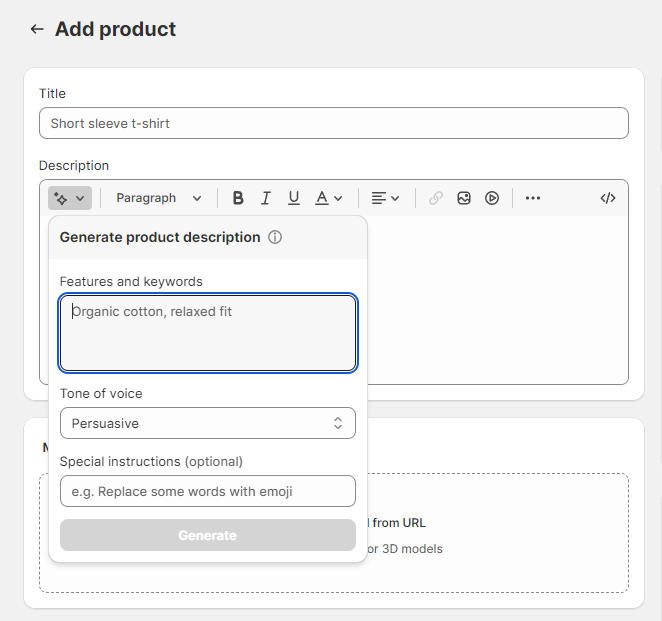
Framer, with a score of 7.6, offers a robust set of AI tools for content generation and localization. Its AI capabilities are more focused on content generation and localization, with features like AI Translation, Text Rewrite, Headline Generator, AI Style, and AI Photo Generating and Editing tools. Despite Framer not having any AI ecommerce features, it still offers a robust set of AI tools for content generation and localization.
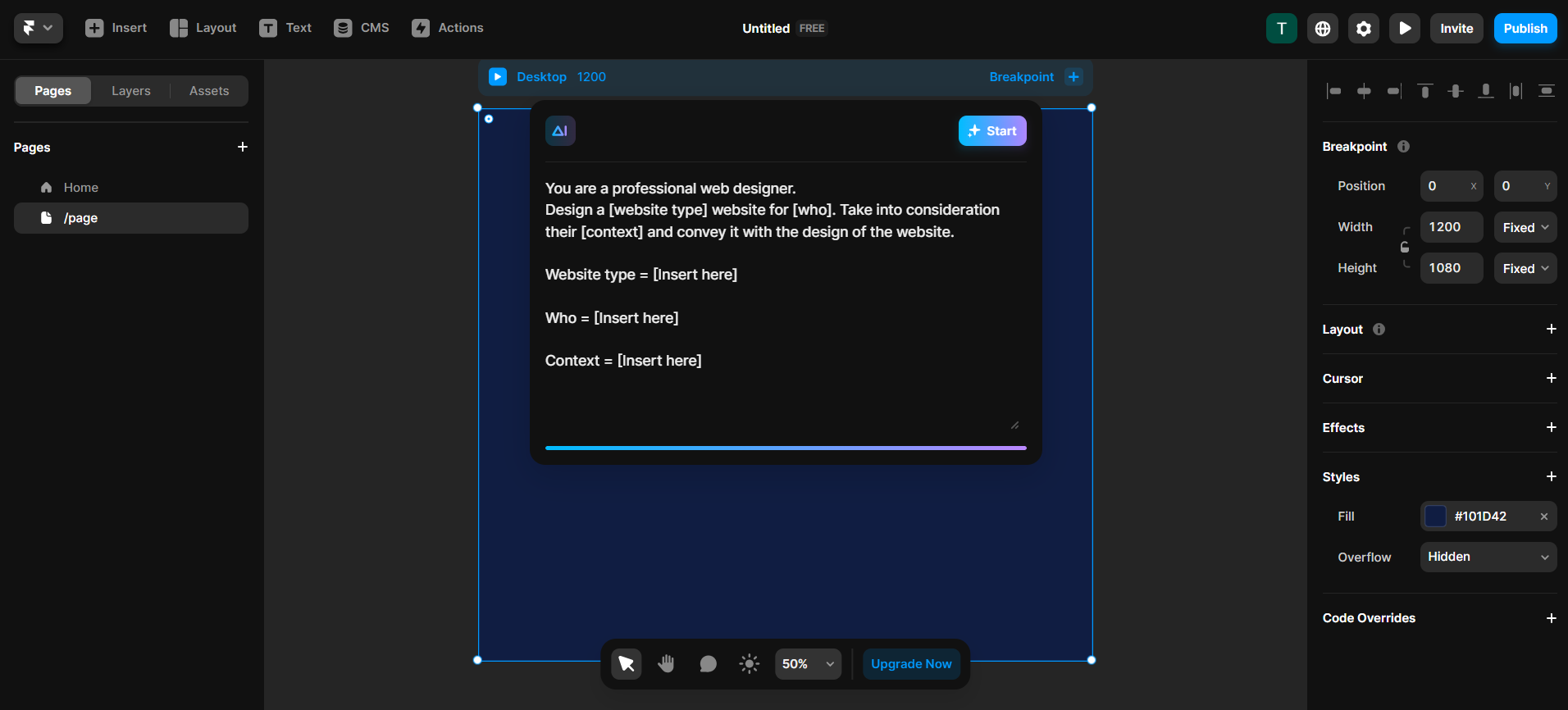
User Management
User ManagementAssesses the platforms’ capabilities in managing user roles, permissions, and accessibility.Score Components:
- Role Customization (40%): Flexibility in creating and defining user roles and
permissions. - Ease of Management (30%): User interface and tools for managing users.
- Access Control (20%): Effectiveness of access control measures for different user
levels. - Scalability (10%): Ability to manage a growing number of users efficiently.
 6.5
6.5
 7.4
7.4
🏆 Winner: Framer
. Both Shopify and Framer offer different user roles with varying levels of access. However, Framer’s user roles cater more to a design and development team, while Shopify’s roles are more focused on ecommerce operations.
Shopify User Roles and Access Levels:
| Role | Description | Access Highlights |
|---|---|---|
| Store Owner | Full control over store | Manage products, orders, discounts, payments, apps, settings. Create and manage staff accounts. |
| Staff | Configurable access by owner | Add/edit products, manage orders, fulfill orders, manage customers, update content. Access level can be customized by the owner. |
| Collaborator | Limited access for external partners | View and manage specific sections like blog or product categories. Cannot access full store settings. |
Framer User Roles and Access Levels:
| Role | Description | Access Highlights |
|---|---|---|
| Designer | Focuses on the aesthetic and UI/UX aspects of the website. | Can create and modify design elements, utilize animation libraries like Framer Motion, and implement accessibility settings. |
| Content Editor | Manages and curates content for the website, including text, images, and other media. | Can edit CMS content, use localization features for different regions, and modify SEO settings. |
| Developer | Works on more technical aspects, such as custom code and integrations. | Has access to deploy options, can use custom domains, manage project permissions, and apply custom code for further optimization. |
| Project Manager | Oversees the project, coordinating between different roles and ensuring the project meets its deadlines and goals. | Can invite collaborators, assign roles and permissions, and manage versions and rollbacks for efficient site management. |
| Collaborator (General) | A role that can encompass various levels of access based on project needs, including design, content, and deployment tasks. | Access can be customized to include a mix of design, content, and deploy permissions based on the project’s needs and the individual’s role within the team. |
Additional Features

|

|
|
|---|---|---|
|
SSL Certificate |
|
|
|
Custom Domain |
|
|
|
Free Custom Domain Included |
|
|
|
International Domains |
|
|
|
Mobile Responsive |
|
|
|
Page Speed |
|
|
|
Website Builder Mobile App |
|
|
|
Convert a Website To An App |
|
|
|
Website Analytics |
|
|
|
Multilingual Sites |
|
|
|
Multiple Users |
|
|
User Feedback
Shopify’s slightly higher rating on G2 Crowd can be largely attributed to its specialization in ecommerce. Its comprehensive features, ease of use, and robust customer support cater specifically to online businesses, leading to high user satisfaction among those seeking a dedicated ecommerce solution.
Framer, on the other hand, receives high marks for its user-friendly, no-code approach to web and prototype design. It offers extensive tutorials, templates, and drag-and-drop functionalities that expedite the design process. Users appreciate its integration with tools like Figma, AI-generated responsive designs, and real-time collaboration features. Despite a steep learning curve for newcomers and limitations in customer support and features without premium access, Framer is lauded as a powerful design tool that enhances creativity and efficiency in web development.
The making of this blog
We followed a clear, step-by-step process to write and research this article.
FAQ
Which platform is better for ecommerce, Shopify or Framer?
Can I use Framer for designing ecommerce websites?
Is Shopify or Framer easier to use for beginners?
Which platform offers better design flexibility, Shopify or Framer?
How do Shopify and Framer compare in terms of pricing?
Which platform provides better customer support, Shopify or Framer?
Can I use both Shopify and Framer for my website?










